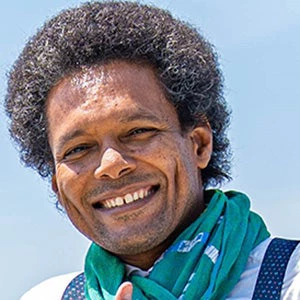Also available in: Français
What is it like to set up and run an incubator as a woman? The answer, much like anywhere else in the world for working women, is that it’s complicated.
In many countries, it’s still unusual to see women working in certain sectors. Regina Mbodj, CTIC Dakar CEO, knows very few women in Senegal who studied ICT. “When I came home and told people about my studies, a lot of people responded, 'I thought only men did that!'"
Mariem Kane, an engineer by training and now president of Mauritania’s incubator Hadina RIMTIC, said that career development can be difficult for women who have been trained in hard skills. “It’s tough for women to find opportunities in these sectors and, because we’re considered more suited to softer skills, we aren’t given the opportunity to prove ourselves.”

and Aissata Lam, iLab President.
Photo © iLab
Aissata Lam, president of Mauritania’s incubator iLab, studied and worked abroad. When she first returned to Mauritania, she didn’t always find it easy to be taken seriously as a young woman. “It wasn’t a walk in the park,” she recalls, smiling, “but I don’t give up easily. You have to have that determination to keep going; there’s a million reasons not to try in a male-dominated environment, but I won’t be one of them.
Kane felt the same: “You’re just taken more seriously when you have more experience, people react quicker and believe you’re bringing something concrete to the table.”
Lisa Barutel, founder and CEO of La Fabrique, commented on age-specific barriers in Burkina Faso, saying that young Burkinabe women are not in the habit of seeing themselves in positions of power, so they exclude themselves from leadership. She has noticed that this is starting to change as the demographics of the country increasingly favor young people. Nevertheless, marriage remains the primary social expectation for women. Many of the interviewed CEOs emphasized that well-educated women continue to face the assumption that they should sacrifice their career in favor of household and family duties.
Nevertheless, the CEOs who are mothers pointed out that African societies can sometimes offer the kind of support to working mothers that would be envied in other parts of the world, including a strong and supportive family and social network, as well as the prevalence of domestic workers, to help take care of their children and household.
Fatoumata Guirassy, CEO of Guinea’s first green tech incubator Saboutech, is currently on maternity leave. “While it can be hard at times to manage everything, my family, friends, and neighbors are so supportive,” she says. “To me, it’s more a question of timing and your mentality; I really don’t consider being a mother a barrier at all.”
Barutel says the same of Burkina Faso. “It’s generally a tolerant and open society, especially when it comes to women’s multiple responsibilities. It’s much more flexible and understanding of these commitments compared to France; women here are still considered to be first and foremost mothers, so the importance of work/life balance and family solidarity is inherently understood.”
Kane, however, cautioned against over-emphasizing the role of motherhood: “I think all women, and not just mothers, have commitments that can make it difficult to balance your work and home life.” Nevertheless, she feels being a working mother is an advantage. “It does make things complicated, but I think having children made me mature faster and ready for the challenges ahead,” she says. “Ultimately though, I think it’s hard for women to strike a balance anywhere, be it Africa or Europe.”
“It’s tough no matter what,” agrees Mbodj, “and overall I think men and women entrepreneurs face the same challenges.” Underlining the need to be results-oriented in the private sector, she added: “it’s about a lot more than gender.”
Guirassy and Barutel, meanwhile, emphasized that they simply don’t consider gender differences in their work. La Fabrique has a female-dominated staff, though Barutel insists that this is not intentional: “For me, it’s about experience, qualification, and motivation. I care about your ability to do your job, not your gender.”
“I really don’t see it as an advantage or a disadvantage,” adds Guirassy. “It can be harder as you move up the chain of command and there are fewer women around, but it’s really about mentality.” Referring to Rwanda, where 60% of representatives in parliament are now women, Guirassy remarked, “Look at how their economy has taken off! I’m convinced that once you give women the chance to participate meaningfully, it benefits the whole of society.”
“In a way, I think that’s our strength, that we can multitask so much at once, just like a good entrepreneur,” concludes Binta Ndiaye, MakeSense Africa CEO. “There’s this enduring stereotype that African women are oppressed but we’re always hustling—we have kids, we work, we manage all these things at once; it’s exactly the same mentality and drive that an entrepreneur needs to succeed.”
If Ndiaye is right, I’ll leave you with this thought: Not every entrepreneur is going to be a woman, but perhaps any woman could be an entrepreneur.



Join the Conversation